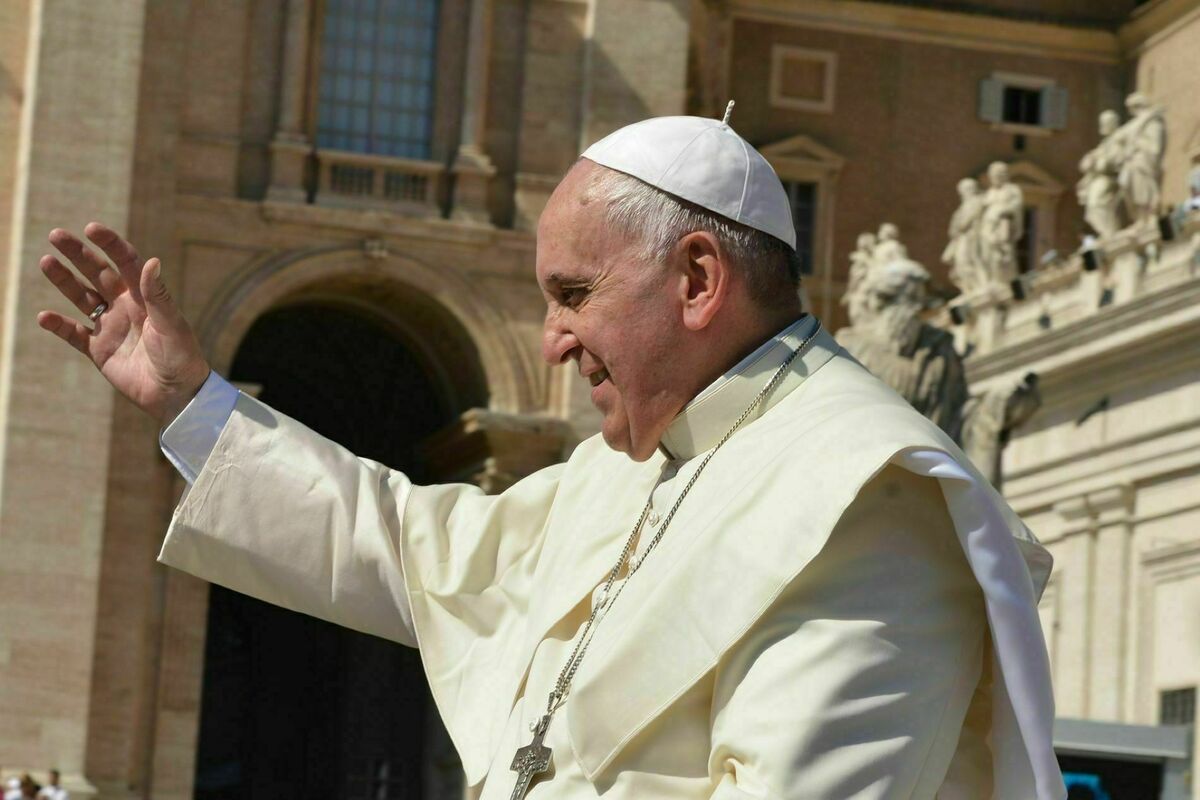- Feb 5, 2002
- 166,675
- 56,287
- Country
- United States
- Faith
- Catholic
- Marital Status
- Married
- Politics
- US-Others
Picture it: you are a normal priest, or you try to be, and you are a little less normal than usual because it is the week before Christmas: special liturgies, special confession times, family togetherness (yikes)! And then, your phone buzzes—and it buzzes again—and it buzzes again. Everybody is sending you images from CNN or MSNBC or Fox, and all the news tickers at the bottom of the screen say, “Pope approves blessing of same-sex couples.”
The doorbell at the rectory buzzes. You answer it. Two men in tuxes are standing there, with bouquets and big hopeful grins.
It is now weeks later. The candy canes are stale, you are starting to recall that the carol does not go, “God bless you, merry gentlemen, you fill us with dismay!” and you are wondering whether you handled that situation well. Maybe the men wanted to be married in your church, and you had to say no, and that you wish you had been able to say it so that it sounded like a door opening instead of closing. Maybe they just wanted a blessing, and you had to navigate the stringent prohibitions and vague positive suggestions of Fiducia Supplicans, the document from the Dicastery for the Doctrine of the Faith that started this whole mishegoss. The recent press release clarification has not helped much (all this drama is about blessings that are supposed to be “10–15 seconds” long?) and neither has the outraged thundering or bland support of your bishop. You want to be obedient to your superior and also to the Holy Father; you really do not want to risk rebuke, scandal, or punishment.
And yet you also feel the responsibilities of a shepherd. You know you need to offer both welcome and orthodoxy—neither, “Go away and come back when you’re chaste!” nor, “Do what you feel, it’s the new Catholic Church, baby!”
You do not know what you should have done. And you are pretty sure you are going to have to do it again.
As a lesbian seeking to live obediently to the Church, who writes frequently on gay people’s spiritual lives, I have had hundreds of formal interviews and informal conversations with LGBT+ and same-sex-attracted Catholics across the full spectrum of relationships to the Church. I have noticed patterns in what nourishes faith—and what damages someone’s trust in God. As Fiducia Supplicans itself reiterates, every soul’s journey and needs are unique. But there are questions that you as a priest can ask and possibilities you can look out for.
Each section below begins with a question or set of questions responding to the hopes and fears of real gay and same-sex attracted Catholics. They are intended to illuminate the reasons people come to you for a blessing, whether or not you are allowed to give that blessing. If you ask these questions with a spirit of curiosity, you will almost certainly hear something unexpected—and open a door to the Love that surpasses all our expectations.
Continued below.

 churchlifejournal.nd.edu
churchlifejournal.nd.edu
The doorbell at the rectory buzzes. You answer it. Two men in tuxes are standing there, with bouquets and big hopeful grins.
It is now weeks later. The candy canes are stale, you are starting to recall that the carol does not go, “God bless you, merry gentlemen, you fill us with dismay!” and you are wondering whether you handled that situation well. Maybe the men wanted to be married in your church, and you had to say no, and that you wish you had been able to say it so that it sounded like a door opening instead of closing. Maybe they just wanted a blessing, and you had to navigate the stringent prohibitions and vague positive suggestions of Fiducia Supplicans, the document from the Dicastery for the Doctrine of the Faith that started this whole mishegoss. The recent press release clarification has not helped much (all this drama is about blessings that are supposed to be “10–15 seconds” long?) and neither has the outraged thundering or bland support of your bishop. You want to be obedient to your superior and also to the Holy Father; you really do not want to risk rebuke, scandal, or punishment.
And yet you also feel the responsibilities of a shepherd. You know you need to offer both welcome and orthodoxy—neither, “Go away and come back when you’re chaste!” nor, “Do what you feel, it’s the new Catholic Church, baby!”
You do not know what you should have done. And you are pretty sure you are going to have to do it again.
As a lesbian seeking to live obediently to the Church, who writes frequently on gay people’s spiritual lives, I have had hundreds of formal interviews and informal conversations with LGBT+ and same-sex-attracted Catholics across the full spectrum of relationships to the Church. I have noticed patterns in what nourishes faith—and what damages someone’s trust in God. As Fiducia Supplicans itself reiterates, every soul’s journey and needs are unique. But there are questions that you as a priest can ask and possibilities you can look out for.
Each section below begins with a question or set of questions responding to the hopes and fears of real gay and same-sex attracted Catholics. They are intended to illuminate the reasons people come to you for a blessing, whether or not you are allowed to give that blessing. If you ask these questions with a spirit of curiosity, you will almost certainly hear something unexpected—and open a door to the Love that surpasses all our expectations.
What brings you to the Church today?
Continued below.

Pastoral Practice After Fiducia Supplicans
Eve Tushnet on tending to gay Catholics.
